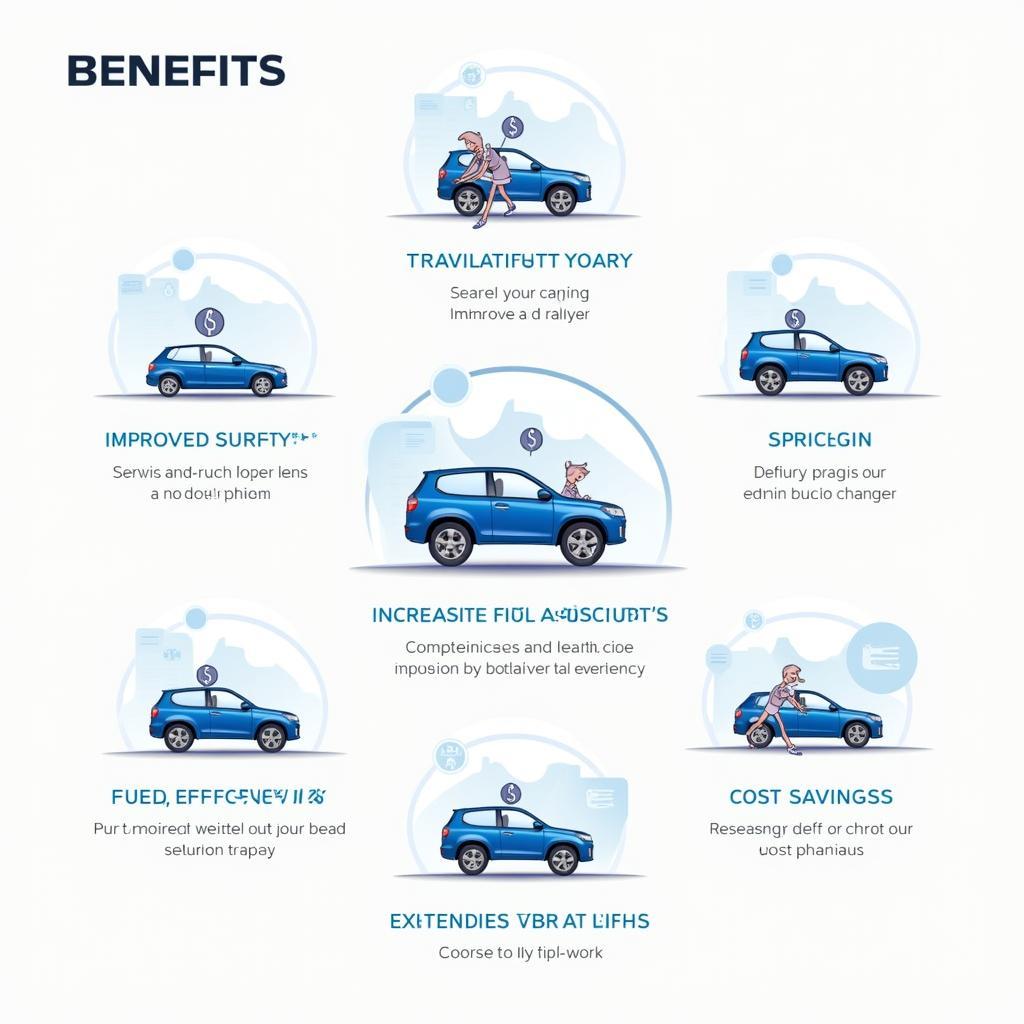Regular car service is crucial for maintaining your vehicle’s performance, safety, and longevity. Ignoring routine maintenance can lead to costly repairs, decreased fuel efficiency, and potentially dangerous driving conditions. From ensuring your brakes are responsive to maximizing your engine’s lifespan, regular servicing is an investment that pays off in the long run.
Why Regular Car Service Matters
Regular car servicing is more than just an oil change; it’s a comprehensive check-up that addresses various crucial aspects of your vehicle’s health. It ensures optimal performance, extends the lifespan of your car, and significantly enhances safety. A well-maintained car offers better fuel efficiency, reducing your running costs and minimizing your environmental impact. Scheduled servicing also helps identify potential issues early on, preventing minor problems from escalating into major, expensive repairs. This proactive approach saves you money and minimizes the inconvenience of unexpected breakdowns. Finally, a full service history adds value to your car, making it more attractive to potential buyers if you decide to sell.
How Often Should You Service Your Car?
The frequency of car servicing depends on several factors, including the make and model of your vehicle, your driving habits, and the manufacturer’s recommendations. Consult your owner’s manual for specific guidelines. Generally, most manufacturers recommend a full service every 12,000 miles or 12 months, whichever comes first. However, more frequent servicing may be necessary if you primarily drive in harsh conditions, such as extreme temperatures or dusty environments. Additionally, some components, like oil and filters, require more frequent changes.
 Benefits of Regular Car Service
Benefits of Regular Car Service
What Does a Regular Car Service Include?
A regular car service typically includes a thorough inspection of various components, including the engine, brakes, suspension, steering, tires, lights, and fluids. Technicians will check for wear and tear, leaks, and other potential problems. They will also replace essential fluids, such as engine oil, brake fluid, and coolant. Filters, including oil filters, air filters, and cabin filters, will also be replaced. Spark plugs, belts, and hoses may also be checked and replaced as needed.
Benefits of Regular Car Servicing for Businesses
For businesses that rely on their vehicles, regular servicing is even more critical. Downtime due to vehicle malfunction can result in lost productivity and revenue. Regular servicing minimizes the risk of unexpected breakdowns, ensuring that your fleet remains operational. Furthermore, well-maintained vehicles project a professional image to clients and customers. Regular servicing also helps businesses comply with safety regulations and avoid potential liabilities.
Keeping Your Car in Top Condition
Maintaining your car between services is also important. Regularly checking your tire pressure, fluid levels, and lights can help prevent minor issues from becoming major problems. Addressing these simple checks can prevent premature wear and tear on components and improve fuel efficiency. Being attentive to your car’s performance, such as unusual noises or vibrations, and promptly reporting them to a qualified mechanic can prevent more significant issues down the line.
Why Choose a Reputable Car Service Center?
Choosing a reputable car service center is essential for ensuring quality workmanship and reliable service. Look for certifications, accreditations, and positive customer reviews. A qualified technician will use the latest diagnostic equipment and follow manufacturer-approved procedures. A good service center will also provide transparent pricing and detailed explanations of the work performed.
The Importance of Regular Car Service: In Conclusion
Regular car service is a vital investment that protects your vehicle, your safety, and your wallet. By adhering to a regular maintenance schedule, you can ensure your car performs optimally, lasts longer, and retains its value. Don’t neglect this essential aspect of car ownership – prioritize regular servicing for peace of mind and a smoother driving experience.
FAQ:
- What is included in a basic car service? A basic car service typically includes an oil change, filter replacements, and a general inspection of key components.
- How often should I change my car’s oil? Consult your owner’s manual, but most manufacturers recommend an oil change every 5,000-7,500 miles.
- What are the signs my car needs a service? Unusual noises, vibrations, warning lights, and decreased performance can indicate a need for service.
- Why is regular brake maintenance important? Regular brake maintenance ensures optimal stopping power, preventing accidents and ensuring safety.
- Can I service my car myself? While some basic maintenance can be done at home, it’s best to leave complex tasks to qualified technicians.
- What are the benefits of a full service history? A full service history increases the resale value of your car and demonstrates proper maintenance.
- How can I find a reputable car service center? Look for certifications, online reviews, and recommendations from trusted sources.
You might also be interested in these articles: meter per second car service, tata car breakdown service or dme car service.
Need more information on car servicing? Check out our articles on filled feedback form sample for car service center and car service berwick.
Need assistance? Contact us via WhatsApp: +1(641)206-8880 or Email: [email protected]. We offer 24/7 customer support.

